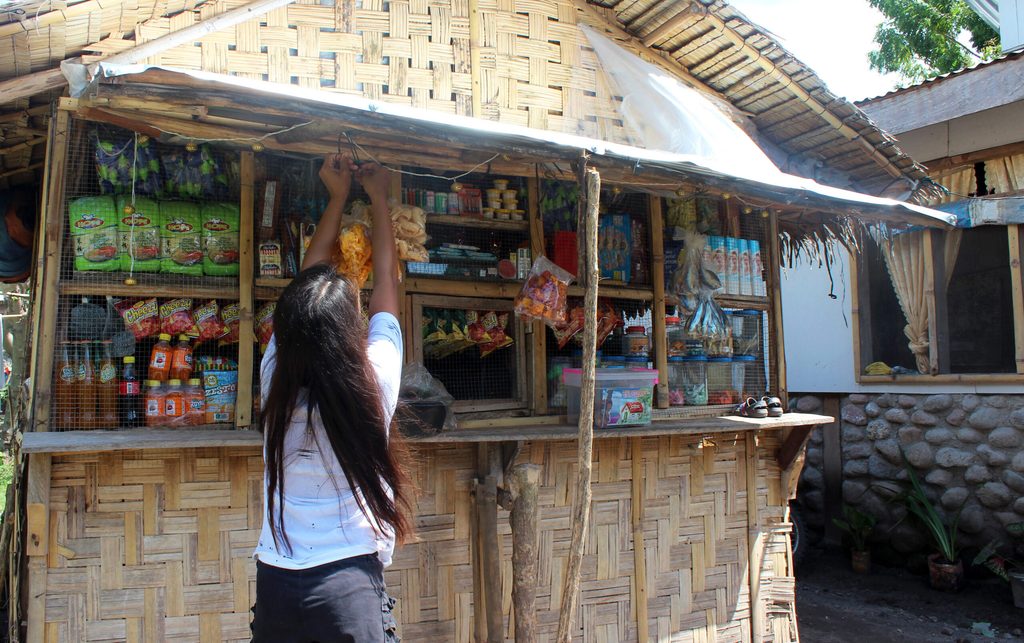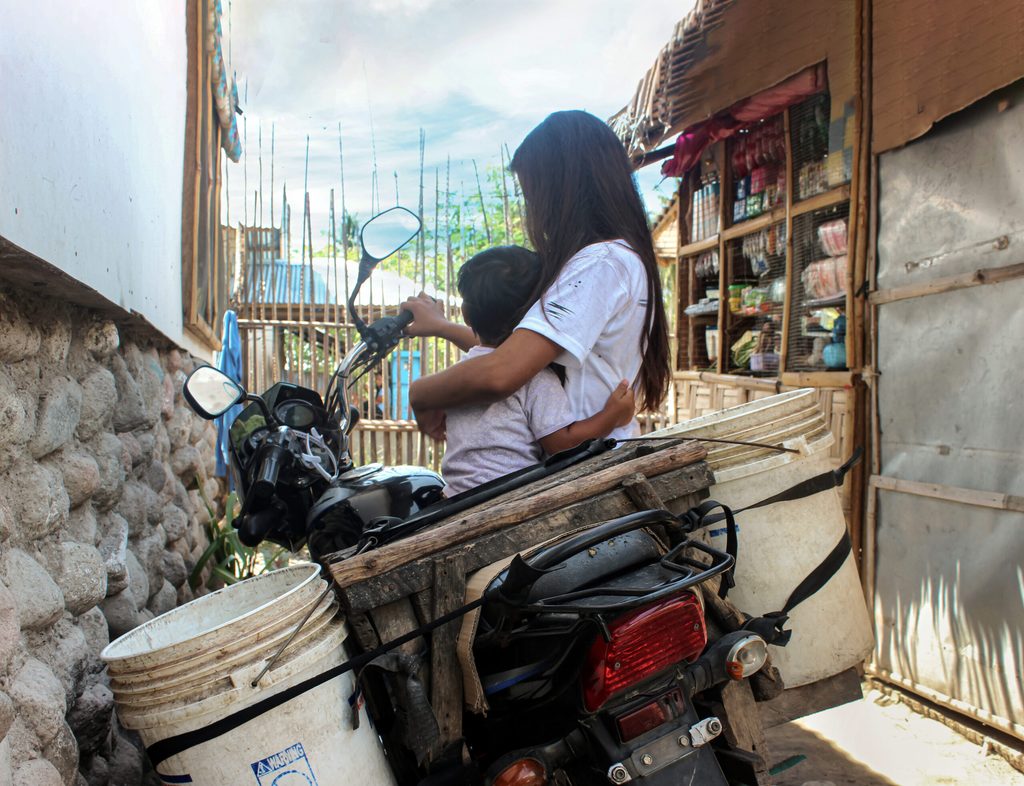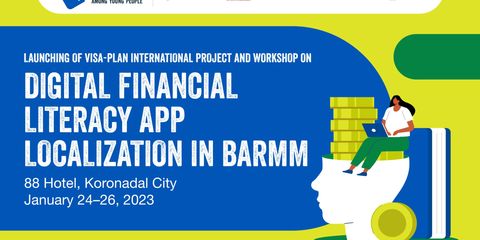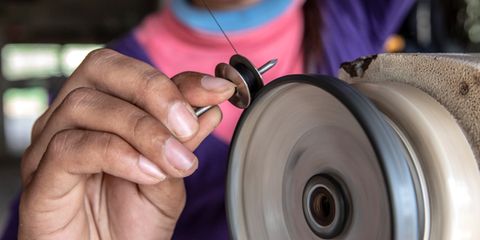From Child Bride to Budding Entrepreneur: The young woman determined to be a success for her family
“I got married at 15 and this was the reason why I quit school. A year later I became a mother. Now I have my own business.” Kate, 18- years-old, The Philippines.

As Kate locks the shutters on her convenience store after another successful day, the past worries of how to support her family and turbulent times can feel like a distant memory, echoes from a different life.
Kate was married at 15 after falling pregnant, becoming a mother at just 16. Being forced into marriage when she was still a child brought sudden strains and pains to Kate and her husband. She quit school and started a family. She lived at the edge of poverty. But then things brightened. Through workshops, training and grants, Plan International Philippines helped Kate become an entrepreneur. Now she dreams of one day graduating from college.
Because of a lack of comprehensive sexuality education in secondary schools throughout the Philippines, many girls and boys like Kate and her husband are unaware of the challenges they will face when they marry.
While the legal age of marriage in the Philippines is 18, reports suggest 2 percent of women aged 25-49 are married by the time they reach 15.
Due to traditional gender stereotypes and roles, girls in many communities are often forced to marry young, leave school and begin a life of work, motherhood, and domesticity.
This was true in Kate’s coastal community, where many young women marry and fall pregnant far too early. Families rely on fishing and farming as the main source of income, education and the wellbeing of girls are often not deemed as a priority.
School dropout is an issue that affects all adolescents regardless of sex. Yet, a study by Plan International Philippines suggests most married girls are forced to discontinue their studies because of feelings of embarrassment and shame – especially among those girls whose child marriages were not voluntary – or because of their new responsibilities as wives and mothers. A lack of financial resources can also push girls to drop out of school early.
“Being a mother at 16, I realized that life is really difficult,” said Kate. “I have had to redirect my life and take one step at a time for our family. Having my own family at such an early age has changed me.”
Having to rely materially on her husband’s family left Kate feeling remorseful and guilty when she couldn’t provide for her own child’s needs.
“Having my own family at such an early age has changed me.”
Kate
It was the COVID-19 pandemic that pushed her to make a change. She decided she had to pursue education once more. She began by attending a workshop on community-based enterprise development conducted by Plan International Philippines’ Reach Mindanao Project, part of the Youth Economic Empowerment Program. There, Kate learned about creating business proposals, managing finances, and running a small enterprise. Armed with new skills and inspired by the other young women in the workshop, Kate decided to put her new entrepreneurial skills to work and begin her own business.
The project also provided start-up capital to help set up new businesses, enabling Kate to open a convenience store.
After only a few months, Kate’s store thrived, and she has used her earnings to diversify and open two new businesses – selling fish and a nighttime street food stall.
“Now, I can provide for my family, and I am also starting to build my savings for the future of my baby and also for when I return to my schooling,” she said.

Through this support, Kate was able to realize her potential, worth and gain knowledge in how to create a secure future for her family. Despite her being married off as a child, she has been able to build her life for the better.
Although the successes of her businesses have provided her family with much desired financial security, education never falls far from her mind. She has learnt from her past and wants to empower herself further through education.
“I think I am still capable of studying,” says Kate, who is now 18. “I want to go back to school and pursue my dreams of graduating from college. Then I will work, while also running my business and giving back to my community.”
The Reach Mindanao Project
The Reach Mindanao Project, funded by the Reach Out to Asia Foundation, promoted inclusive education and flexible learning options. The goal was to strengthen the capabilities of young people by enriching their technical and vocational skills, so they could gain decent employment or start their own business. The project finished in January 2021.
Categories: Campaigns, Education, Emergencies, Sexual and reproductive health and rights, Skills and work


